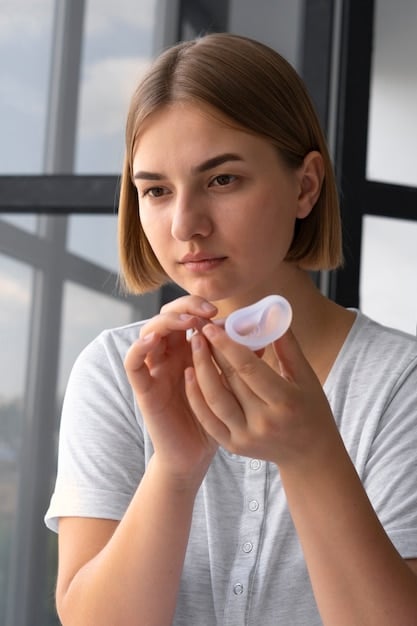Are Toners Necessary? Unveiling the Truth About Skincare Toners

The Truth About Toners: Are They Necessary in Your Skincare Routine? Toners can balance skin pH, remove residual impurities, and provide hydration, but their necessity depends on individual skin type, concerns, and the overall skincare regimen.
Are you questioning whether toners are a vital step in your skincare routine or just another hyped-up product? Let’s delve into the truth about toners: are they necessary in your skincare routine?
What exactly is a toner?
Toners have evolved significantly over the years. Once known for their astringent properties, modern toners offer a range of benefits. Let’s explore what defines a toner today.
The evolution of toners
Originally, toners were designed to remove soap residue after cleansing. Today, they’re formulated to target various skin concerns.
Key ingredients in toners
From hydrating hyaluronic acid to exfoliating AHAs/BHAs, toners now include beneficial ingredients that cater to different skin needs.
- Hydrating toners: Focus on replenishing moisture with ingredients like glycerin and hyaluronic acid.
- Exfoliating toners: Use AHAs/BHAs to gently remove dead skin cells and promote cell turnover.
- Balancing toners: Help to maintain skin’s natural pH balance, often containing soothing ingredients like aloe vera.
- Brightening toners: Incorporate ingredients like vitamin C to even out skin tone and reduce hyperpigmentation.
In summary, a toner is a liquid skincare product used after cleansing to prepare the skin for serums and moisturizers, offering benefits ranging from hydration to exfoliation depending on its formulation.

The benefits of using a toner
Adding a toner to your routine can offer a multitude of benefits beyond just removing leftover impurities. Let’s explore some reasons why you might want to incorporate a toner into your daily skincare regimen.
Balancing skin pH
Toners can help restore your skin’s natural pH level after cleansing, which is crucial for overall skin health.
Removing residual impurities
Even after cleansing, traces of makeup, dirt, and oil can remain on the skin. Toners ensure a cleaner canvas.
Hydration boost
Many toners are formulated with hydrating ingredients, leaving your skin feeling refreshed and supple.
Using a toner can hydrate skin, remove impurities, or balance skin’s pH levels. The actual benefits depend on the specific ingredients and skin type.
Do you really need a toner? Factors to consider
While toners offer several benefits, they may not be essential for everyone. Consider these factors to determine if a toner is right for you.
Skin type
Different skin types have varying needs. Understanding your skin type is key to choosing the right toner.
Specific skin concerns
Are you battling acne, dryness, or hyperpigmentation? Toners can be targeted to address these concerns.
Let’s consider the skin types in detail:
Oily Skin
Those with oily skin may find toners particularly beneficial. Toners can help remove excess oil and prevent breakouts. Look for toners containing ingredients like salicylic acid or tea tree oil.
Dry Skin
If you have dry skin, choose hydrating toners that contain ingredients like hyaluronic acid or glycerin. Avoid toners that contain alcohol, as they can further dry out the skin.
Sensitive Skin
People with sensitive skin should opt for gentle, fragrance-free toners. Ingredients like aloe vera and chamomile can help soothe and calm the skin.
Ultimately, deciding whether to use a toner should involve a personalized approach, considering your skin type, concerns, and the overall effectiveness of your current skincare routine.

How to choose the right toner for your skin type
The key to reaping the benefits of a toner lies in selecting the right one for your skin type and concerns. Consider these tips to make the best choice.
Ingredients to look for
Target specific ingredients based on your skin needs, such as hyaluronic acid for hydration or salicylic acid for acne.
Ingredients to avoid
Steer clear of harsh alcohols, fragrances, and dyes that can irritate the skin.
- For dry skin: Look for hydrating ingredients like hyaluronic acid, glycerin, and aloe vera. Avoid alcohol-based toners.
- For oily skin: Choose toners with salicylic acid, tea tree oil, or witch hazel to control oil production.
- For sensitive skin: Opt for fragrance-free, alcohol-free toners with calming ingredients like chamomile or green tea.
- For acne-prone skin: Select toners with AHAs/BHAs to exfoliate and prevent breakouts.
Selecting the right toner involves understanding your skin type and concerns, carefully reading ingredient lists, and conducting a patch test when necessary to ensure the product is well-suited for your skin.
How to incorporate toners into your skincare routine
Incorporating a toner into your skincare routine is a simple process that can enhance the effectiveness of your other products. Let’s discuss how to do it correctly.
When to use toner
Toners are typically applied after cleansing and before serums or moisturizers.
Application techniques
You can apply toner with a cotton pad or by patting it directly onto your skin.
Layering with other products
Allow the toner to fully absorb before applying subsequent products to maximize its benefits.
Integrating a toner entails using it post-cleansing on clean, dry skin, followed by serums and moisturizers, and experimenting with different application methods to determine what yields the best results for your unique skin needs and preferences.
Common mistakes to avoid when using toners
Even with the right toner, mistakes can hinder its effectiveness. Here are some common pitfalls to avoid to ensure you’re getting the most out of your toner.
- Over-exfoliating: Using exfoliating toners too frequently can lead to irritation and dryness. Start slowly and adjust frequency as needed.
- Using the wrong toner for your skin type: Selecting a toner that is ill-suited for your skin can exacerbate issues rather than improve them.
- Skipping other essential steps: Toners are not a substitute for cleansing or moisturizing. Ensure you maintain a well-rounded skincare routine.
Avoiding common pitfalls in toner use includes selecting the right product for your skin type, using it in moderation, avoiding harsh ingredients, and ensuring it complements, not replaces, other essential steps in your skincare regimen.
| Key Point | Brief Description |
|---|---|
| 💧 Hydration | Provides a boost of moisture to the skin. |
| ⚖️ pH Balance | Helps restore the skin’s natural pH balance. |
| ✨ Impurity Removal | Removes residual dirt and makeup. |
| 🌱 Key Ingredients | Hyaluronic acid, salicylic acid, aloe vera, etc. |
Frequently Asked Questions (FAQ)
▼
While there’s a toner for nearly every skin type, it’s essential to choose one formulated for your specific needs. Those with dry skin should choose hydrating formulas, while oily skin types may benefit more from those containing salicylic acid.
▼
No, toners should never be used as a substitute for cleansing. Cleansing removes dirt, oil, and makeup, while toners balance the skin’s pH and prep it for serums and moisturizers.
▼
The frequency of toner use depends on your skin type and the specific product. Generally, using a toner once or twice daily after cleansing is sufficient. Adjust frequency as needed based on how your skin responds.
▼
Yes, toners formulated with ingredients like salicylic acid or tea tree oil can help with acne. These ingredients exfoliate the skin, unclog pores, and reduce inflammation, leading to fewer breakouts.
▼
Side effects from using toners are rare but can include dryness, irritation, or redness, especially if the toner contains harsh ingredients like alcohol. Always perform a patch test and choose toners that match your skin type to minimize these risks.
Conclusion
Ultimately, the truth about toners is that their necessity depends on individual skin needs and preferences. They can be a valuable addition to your skincare routine if chosen correctly and used appropriately, but they are not an absolute must-have for everyone.





